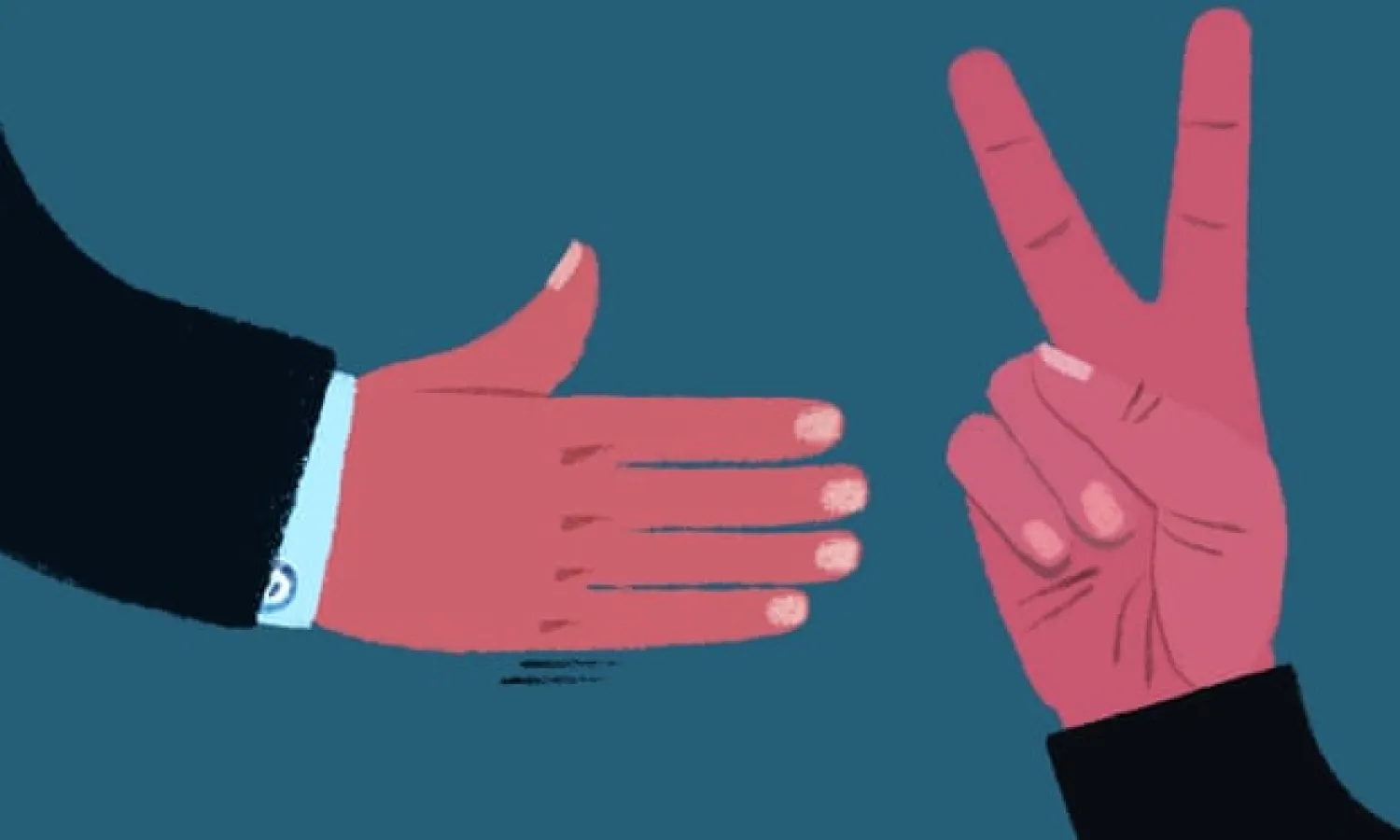Fail again. Fail better. When Pep Guardiola was planning for his second life as a manager he went to meet various hand‑picked tactical super-brains. Among them was Marcelo Bielsa, recently resigned as manager of Argentina. Bielsa invited Pep to his home in Rosario. They had a barbecue. Then they sat and talked about football for 11 hours.
Yes, 11. It is just such a brilliantly macho interpretation of the basic idea of having a bit of a chat. Why not 12 hours? Why not 36? Why not five weeks glued to the garden loungers?
No transcript of this conversation exists but it seems fair to say it would reward being adapted into a difficult arthouse movie, perhaps with an extended dream sequence where they both spend an hour throwing away the paper plates and trying to find something to put the potato salad in, all the while arguing about counter‑press phases and whether you can use wire wool on a galvanised steel grill.
“There are 36 different forms of communicating through a pass,” Bielsa has said, which is definitely a lot of forms. This is a manager who once drew the outline of a pair of feet on his shoes to illustrate some technical point or other and then wandered around absent-mindedly wearing the same feet-shoes for the next three weeks.
The Bielsa mythology is such fun, so full of these moments, that it can at times seem a little comical. Here he comes, the nerd-god pacing his touchline, occasionally barking out a line of machine code. Which is a shame as this is to miss the real joy of Bielsa’s maniacally vivid, almost entirely trophy-free European club football career.
This week Leeds United and Derby County produced the domestic game of the season, a Championship play‑off second leg so full of nuance you needed to watch it at least three times, preferably on grainy Bielsa-style VHS in some gloom-ridden basement. It was also a game that offered up the best of Bielsa. Specifically, the things he tells us about failure. For the last 10 days the season’s endgame has been pegged out around the opposite of failure, a gullet-fed feast of winners’ comebacks and duelling superlatives; complete with a counter-narrative of sickness and debauched methods among the losers.
There is a tendency to see sport, and indeed life itself, in such polarised terms. We live in an age of Goats and frauds, temperature set by the idiocy of social media, the idiocy of Big Sport hype, the idiocy of idiots.
Spare a thought in the middle of this for failure, the most underrated of sporting commodities. Not the kind of failure that you reject, or transform later into disdainful success. But proper failure – failure of substance, a way of losing that illuminates both your opponent and the experience itself.
At Elland Road, Leeds’ season ended like this, in a falling short that remained true to Bielsa’s own obsession with a system and a way of playing. Above all it was just a brilliant game, a night of relentless running and relentless collisions, not all of them visible to the naked eye.
There was even a note of beauty in the way Leeds lost at the very end to a team they’d beaten three times out of three, and whom they finished nine points ahead of in the regular season. With 85 minutes gone, the scores level and Leeds down to 10 men, the right-back Luke Ayling charged forward, as he had all night, and lost the ball. He charged back as Derby poured into the gap behind him in a pre-drilled counter-thrust, teeing up Jack Marriott to kill the game.
In the days since, assorted English pundits have sighed over Leeds’ defensive naivety, as though this openness at the end was a moment of weakness, a failure to read the script. Whereas it was of course the opposite, a team following the plan to the final second of the season: run, chase, pass and be damned.
From this angle Bielsa’s Leeds have been a bizarro Manchester City, utterly wedded to their system but without the magic bullet of all that high-level talent, a way of making it work even when it fails. This is what a pure, flawed, human version looks like.
It has been thrilling to watch. Leeds had most shots, most possession, most tackles, the most players sent off at home. Bielsa gave 10 players under the age of 21 a senior debut. Leeds fell short but along the way produced a series of thrilling, transcendent moments that will retain their own kind of life outside the more pressing issue of points and tables.
Whisper it, but in failure Bielsa also helped to give Frank Lampard his finest moment on the touchline.
Lampard was always a punt on status and presence, perhaps even a celebrity appointment for all his obvious intelligence. He looked like something else at Elland Road, changing the game with a tactical switch just before half-time, and winning it with the way his players poured forward into the gaps Leeds’ game of sprints leaves behind.
There is a Chinese saying that defeat should be celebrated because in the process your opponent is educating you. And Lampard did learn how to play Bielsa. Filtered down through acrimony, the weirdness of “Spygate”, defeats home and away, he might just have had his own 11-hour tutorial.
Bielsa may well end up leaving Leeds now. If he does it will be a profound loss to English football, a place so reflexively hostile to intellectualism, to theory and form for form’s sake. Either way he remains football’s great nonconformist, drawing his Rothko shapes, scrolling his numbers; and embodying along the way the most unfashionable of concepts – beautiful, ennobling failure.
The Guardian Sport









